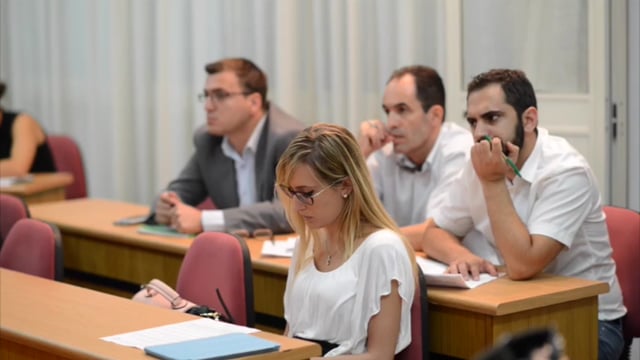[WATCH] Teachers' union hits out at 'dubious' Church schools’ employment practices
Kevin Bonello questions why Stella Maris fire an average of three probationary teachers every year • suggests a Church school may have rejected a headmistress applicant because of her non-Catholic husband


Certain Church schools are recruiting teachers in a "dubious and irregular" manner, the Malta Teachers' Union (MUT) has warned.
Addressing a press conference, MUT president Kevin Bonello said that Stella Maris College "has reached a national record" by sacking an average of three probationary teachers every year, sometimes replacing them by unqualified teachers.
"I have no idea why this practice occurs, but it is unbefitting of any employer, let alone the church, and unfair on these young teachers who are just starting out in the world," Bonello said.
"We sent a letter to the Archbishop around 15 days ago to formally request an investigation into these employment practices, but we are yet to receive a response."
The MUT was delivering a press conference to mark World Teachers' Day.
Bonello also critcisied Church schools for employing some teachers based on their ethos, rather on their qualifications.
"There was a serious case last year, whereby a woman applied for the position of headmistress at a church school," he recounted.
"She came first in the interview process, and the school informed her that she had got the job. However, the next day, they called her to tell her that they had changed their mind. Eventually, we discovered that she was married to a non-Catholic. Was this the reason behind the school's change of heart? I don't know, but it was strange.”
Bonello admitted that he had hoped that the case would end up at court but the woman preferred not to.
The official theme for this year’s world teachers’ day is ‘Empowering teachers, building sustainable societies’. The theme was adopted by UNESCO and Education International.
“Every year on World Teachers Day, we celebrate educators and the central role they play in providing children everywhere with a quality education,” UNESCO, the International Labour Organisation (ILO), UNICEF, United Nations Development Programme (UNDP), and Education International (EI) said in a joint statement.
Apart from education goals and targets for quality teachers, the MUT agreed that teachers should be empowered through the provision of decent working conditions, well-resourced, safe and healthy working environments, trust, professional autonomy, and academic freedom. Teachers, it said, were not only a means to implementing education goals but are the key to sustainability and national capacity in achieving learning and creating societies based on knowledge, values and ethics.
Bonello said teachers faced daily hurdles which prevented them from delivering their true potential: “Locally we can mention situations whereby schools are being populated with children who can speak neither Maltese not English. It is unacceptable to us that parents can refuse such programmes and consequently create a multitude of issues in their children’s class. Moreover, there needs to be proper evaluation of the current programme being implemented to ensure that children who participate in it will then be able to communicate properly in either English or Maltese.”
A total of 2,000 foreign students attended state primary schools last year.
The Union also mentioned a number of other issues currently being faced by educators, such as the fact that peripatetic teachers are being called to work outside the classroom.
“Children in State Primary Schools are losing out on such already infrequent lessons,” he said.
Referring to the recently opened Ġuże Ellul Mercer School, the MUT claimed that this was another badly planned project, without any foresight.
According to the MUT, while the school should cater for 240 students, only 40 students applied. As a result, a number of educators will now be made redundant at the start of the scholastic year.
The Union also mentioned MCAST, where industrial relations are currently strained because of a variety of issues: “MCAST needs to understand that the MUT is a social partner and is obliged to tackle issues and complaints of the educators it is representing.”
















.png)





